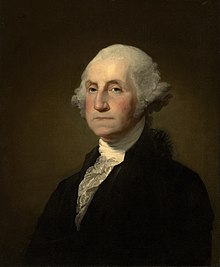
THE BATTLE OF
MOORE’S CREEK
(The Lexington
and Concord of the South)
Following
the Battles of Lexington and Concord and amidst growing tension North Carolina
royal governor, Josiah Martin began efforts to curb rebellion. King George III granted permission to Allan
Maclean to recruit a Scottish regiment among the Scots in North Carolina. Two British generals, William Howe and Henry
Clinton, planned to invade and secure a loyalist presence in Charles Town South
Carolina with the help of both British and Loyalist Troops that were to meet in
Brunswick North Carolina. Maclean sent
the 1,600 troops he mustered to join the British.
The
troop movements and arrivals at New Bern of the two British generals did not go
unnoticed by the NC Committee of Public Safety and the rebels soon set out to
block the most direct route of the British.
The two forces would meet at Moore’s Creek Bridge on February 27, 1776. Three Rebel colonels, James Moore, Alexander
Lillington and Richard Caswell led approximately 1,000 patriots against the
British force which included 700 Scottish Highlanders.
The
patriots began preparing to meet the enemy by building earthworks on the east
of Moore’s Creek under command of Col. Lillington. Troops under Col. Moore blocked Rockfish
Creek close to Cross Creek forcing the British to cross Moore’s Creek at Negro
Head Point Road. Meanwhile Col. Caswell
and his force of 850 rebels positioned “Old Mother Covington”, a 2 ½ pound
cannon, and her “daughter” a 1 ½ pound swivel gun, on the west side of the
creek.
When
the British and Scots were within six miles of the bridge they offered a pardon
to the Rebels if they would surrender and swear loyalty to the king. The terms
were refused and the messenger reported back both the refusal and the position
of the rebel troops at the time. However
Caswell moved his men, leaving their tents up and fires burning and removed and
loosened some planks from the Moore’s Creek Bridge, joining Lillington on the
east side.
When
Capt. McLeod and his Loyalists reached the rebel camp they realized it was
empty. He advanced his men to the bridge
with the Highlanders in the front, armed only with broadswords. Surging forward to the mournful sound of
bagpipes and the cry “King George and Broadswords” the Scots moved onto the
bridge only to discover the loosened and missing planks. Old Mother Covington and her daughter
discharged along with musket fire from the patriots. The Loyalists suffered losses of more than 30
and countless others were lost in the swamps or drowned. The rebels lost one man that night in battle
and recorded one wounded.
The
Battle of Moore’s Creek may have been the last battle of Scottish Broadswords
and following their defeat many Scots left for Nova Scotia or took the oath of
allegiance to the fledgling new country.
It
was also a rallying cry of victory for the South. The royal governor was forced to leave North
Carolina and costal ports were closed to British
ships. On April 12 1776 delegates met at
Halifax and endorsed the cause of independence.
It would be several years and many bloody battles later before true
independence was won but the Battle of Moore’s Creek was a pivotal point in
that war.
Historians admit that the Battle of Moore’s Creek Bridge led to
the demise of British royal government in North Carolina. The royal government
had to flee from the colony, and Britain was no longer allowed port in the
colony’s coastal towns. In addition, the victory aroused delegates to meet
at Halifax on April 12, 1776, to discuss North
Carolina’s support of Independence, and the battle allowed the Patriots to hold
to the South at the early outset of the Revolutionary War.
Submitted by Diane Price
